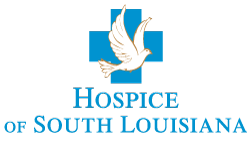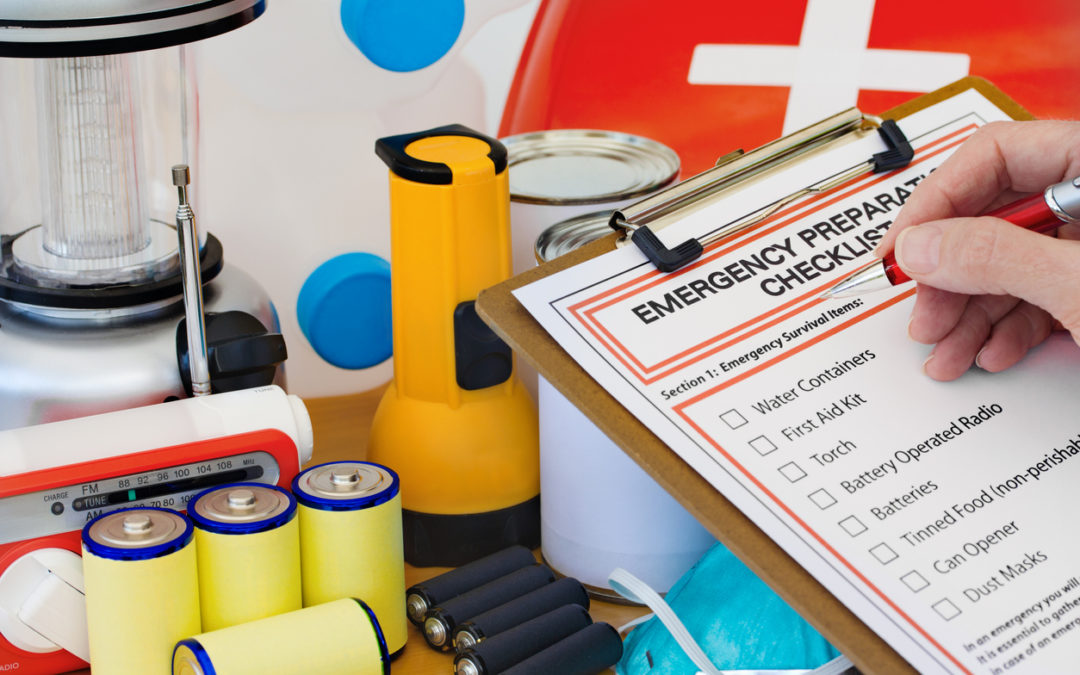In Louisiana, the weather can change at a moment’s notice. The summertime brings the chance of severe thunderstorms and the ever-present threat of hurricanes. When your loved one is in hospice care, the last thing you want to worry about is how to handle a natural emergency. Not only can the effects of storms cause flooding and other detrimental damages, but even losing power can be hazardous for patients that rely on lifesaving medical equipment. At Hospice of South Louisiana, we want to assure you and your loved one that no matter what happens, we have a hospice emergency preparedness plan in place.
Some important information to keep on hand when caring for an elderly loved one is the National Oceanic and Atmospheric Administration (NOAA) Extreme Weather Information Sheets. These sheets are designed to help coastal residents stay informed of tropical storms and hurricanes. Printable PDF versions are available along with a free iOS App. Ready.gov is another site that helps you plan ahead for any pending disaster including financial preparedness and how to practice your emergency plan ahead of time.
How to Prepare for Hurricanes and Other Severe Storms
Hurricane season runs from June 1st to November 30th. While hurricanes are the most popular occurring severe storm in Louisiana, tornadoes, and thunderstorms can also be extremely detrimental, especially when it comes to power outages and flooding. If your loved one is in an area where flash flooding can occur during heavy rain, you want to make sure that you are prepared to handle all of their medical needs and have an evacuation plan if needed. Here are a few hospice emergency preparedness plan tips to have in mind before the next storm occurs:
- Make sure to have easily transferrable medical equipment on hand. Your hospice facility will make sure that the important equipment that your loved one needs is easily transferable in the case of an evacuation. If you are taking care of your loved one on your own, you want to look into having extra equipment, or a backup plan on how to transfer their equipment and medication if a disaster occurs.
- Invest in a portable oxygen tank. If your loved one relies on an oxygen tank, this is one of the most important pieces of equipment you should have that is portable and easy to take with you. If your loved one is a hospice patient, we keep extra portable oxygen tanks in the home for oxygen-dependent patients during the storm season.
- Keep all important documents in a folder for easy evacuation. Important documents that may be needed when the patient is away from their home includes driver’s license, hospice folder and information, and current medication list.
- Maintain an extra medication supply for backup. The last thing you want to happen is for your loved one to run out of their medication when evacuating. During hurricane season, we always keep an extra supply of medication on hand to ensure the patient never goes without the proper care.
- If possible, have a generator for oxygen-dependent patients. If your loved one is an in-house hospice patient, there will always be backup generators available for extended power outages. A generator can be a valuable investment if you are the primary caregiver for your loved one and you find the threat of severe natural disaster occurs frequently.
- Consider alternate ways of cooling off patients during power outages. Most severe storms occur during the hot summer months. To keep your loved one cool and comfortable have some battery-operated fans, ice packs, and cool towels on hand to use when needed.
Hospice of South Louisiana Emergency Preparedness Plan
At Hospice of South Louisiana, we participate in and attend regional emergency preparedness exercises to make sure our patients are kept secure and provided with the best comfort possible during an emergency. Our team is trained in specific plans for multiple types of potential emergencies and disasters including power outages, fires, and flooding. If your loved one needs special assistance during an evacuation in the event of an emergency, we identify them in the At-Risk Registry to make sure that they receive all the help they need during a transfer. We also work with the local Office of Homeland Security and Emergency Preparedness (OHSEP) to help patients and caregivers be triaged during an evacuation.
As a patient in hospice care with Hospice of South Louisiana, you will be provided with updated emergency preparedness information so you can rest assured that you will receive the utmost care and security possible. Contact Hospice of South Louisiana today to learn more about how we keep our patients safe during any potential emergencies.

